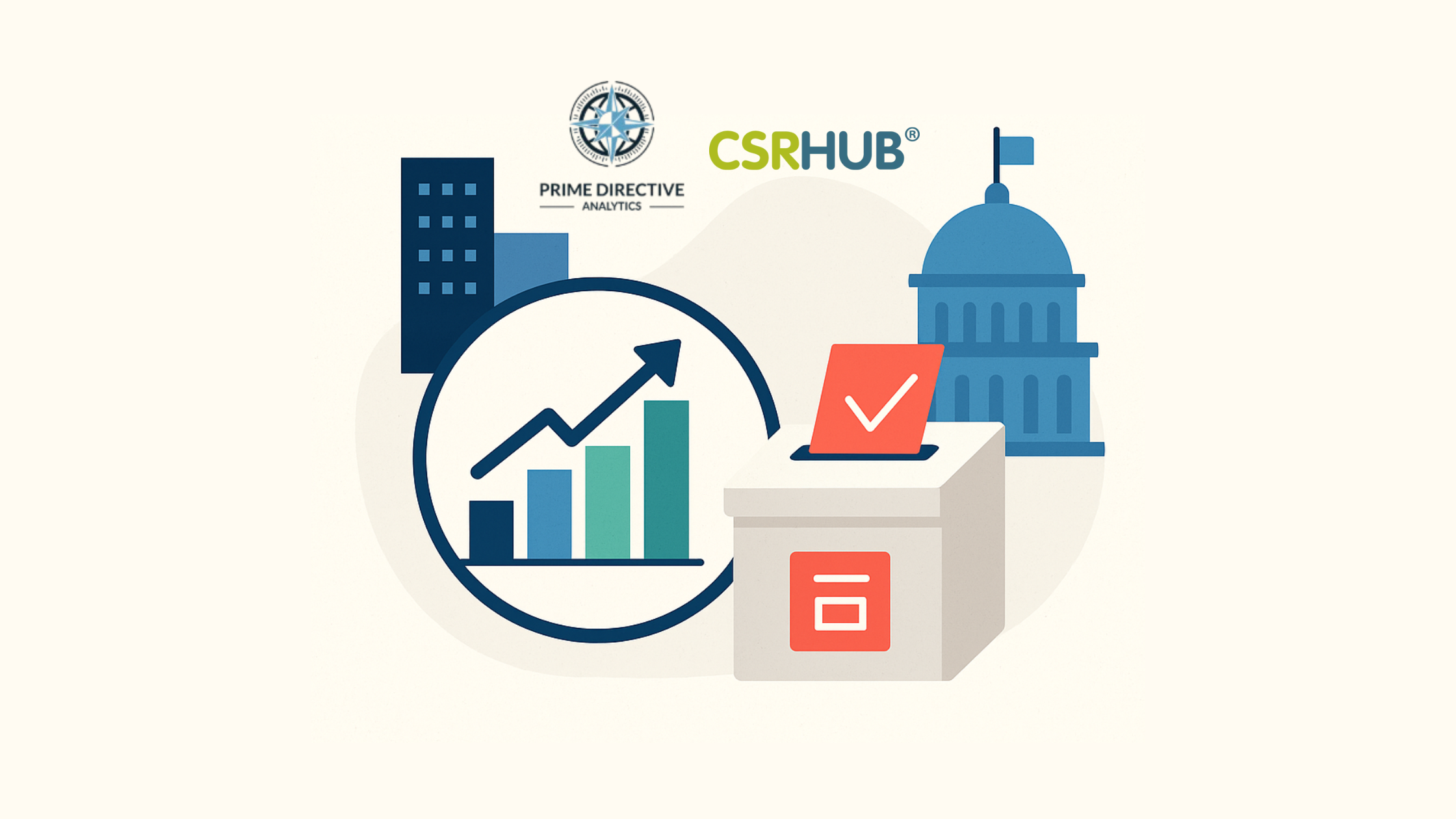By Bahar Gidwani
We participated in a CleanWeb Hackathon this past weekend. It was fun to hang out with 100+ programmers and designers who are interested in changing the world—a group of smart people who came up with some interesting ideas.
However, I was surprised that I had to explain several times why we at CSRHub track broad CSR (corporate social responsibility) and sustainability issues, rather than just whether or not a company is “green.” It seemed that folks who focus on “clean energy” and “clean tech” are into “carbon” and “climate change” and they care about how companies and people treat the environment. But not about the many other things that go into corporate responsibility and sustainability.
If I attended a conference of labor activists, they would talk about employee health care, training and safety, and community issues. Similarly, I know that whether you are involved in water issues, protection of indigenous people, animal treatment, or involvement in the military you are probably passionate about these subjects and less concerned with other areas.
Fortunately, our profiling system captures these variations. Any registered user can set a personal profile that reflects her or his individual priorities. The user can decide that corporate environmental performance should get the highest weight or that corporate governance, employee treatment, or community relations should dominate. Users can also tell our ratings engine that certain special issues should count in our overall ratings analysis.
We recently reviewed the profiles of our first few thousand users. We have decided to name the five groups with different colors, as follows:
38% = Green (environment focused). These people generally set the importance of environmental issues at between 60% and 75% above the mid-line. About half of this group ranked all the other aspects of CSR roughly equal. The rest were about equally split between also caring about a single other issue: community, governance, or employees.
9% = Blue (community and employee focused). This group pushed up the importance of community and employee engagement, and deemphasized environment and governance. There are subgroups that push up community more than employees and vice versa. But, this group clearly cares most about people and less about the environment or how companies are run.
9% = Red (governance focused). These people want companies to be ethical, have a balanced and diverse board, and to be transparent about their behavior. The main group (about two thirds of the Reds) put the rest of the choices as equal. The two sub groups had either a community or employee side concern.
18% = Grey (“all things being equal”). This large group of people declared all of the areas more or less equal. About half of them demoted one area by 10% to 25%—so they could have a little more focus on the other three. But, these users (our base is mostly activists and CSR professionals) want companies to follow a balanced approach to social responsibility.
26% = White (follow a leader). About a quarter of our users make their own profile, but chose to clone someone else’s profile instead of making their own. Most of them took the CSRHub average user profile as their viewpoint. These users may not have a strong opinion, or may be interested to know how “everyone else” feels about the companies they are researching.
Do the “green” people know they represent the viewpoint of less than 40% of the CSR community? Do the Blues and Reds realize that they could recruit and proselytize among large Grey and White communities, who might then switch to their view? We believe our data proves there is a rainbow of views on CSR. Both activists and companies could benefit from understanding the diversity of these views and by communicating messages that appeal to the needs of each of these groups.
Photo courtesy of Capture Queen
Bahar Gidwani is a Co-founder and CEO of CSRHub. Formerly, he was the CEO of New York-based Index Stock Imagery, Inc, from 1991 through its sale in 2006. He has built and run large technology-based businesses and has experience building a multi-million visitor web site. Bahar holds a CFA, was a partner at Kidder, Peabody & Co., and worked at McKinsey & Co. Bahar has consulted to both large companies such as Citibank, GE, and Acxiom and a number of smaller software and Web-based companies. He has an MBA (Baker Scholar) from Harvard Business School and a BS in Astronomy and Physics (magna cum laude) from Amherst College. Bahar races sailboats, plays competitive bridge, and is based in New York City.



